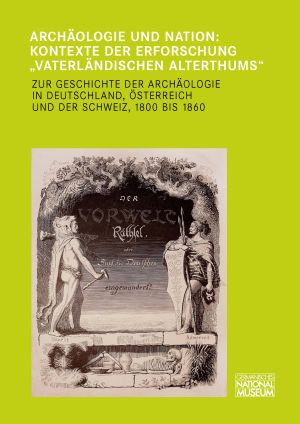How to Cite
License (Chapter)

This work is licensed under a Creative Commons Attribution-NonCommercial-NoDerivatives 4.0 International License.
Published
Zu den Anfängen der Klassischen und „vaterländischen“ Altertumskunde
On the Origins of Classical Archaeology and National Antiquarianism
The article examines the emergence of the fledging field of classical archaeology in Germany, tracing it to a distinction between ‘beautiful’ and domestic antiquities. It traces the roots of this separation to three areas of debate:
1. From ‘beautiful antiquity’ to a science: German classical archaeology in the early 19th century (The institutionalization and professionalization of German classical archaeology in the second and third decades of the 19th century? (Greece, the ‘Fatherland’, J. J. Winckelmann, W. v. Humboldt, Chr. G. Heyne, L. Ross).
2. Nationalist discourse and (or vs.?) enthusiasm for Greece: the influence of Germano-Roman discourse and enthusiasm for Greece on the interpretation of archaeological finds in a politically divided Germany (the academic perspective).
3. Classicism and Neoclassicism (Enlightenment and science) vs. ‘Germanic’ antiquities (nationalism and dilettantism – the institutional perspective).







